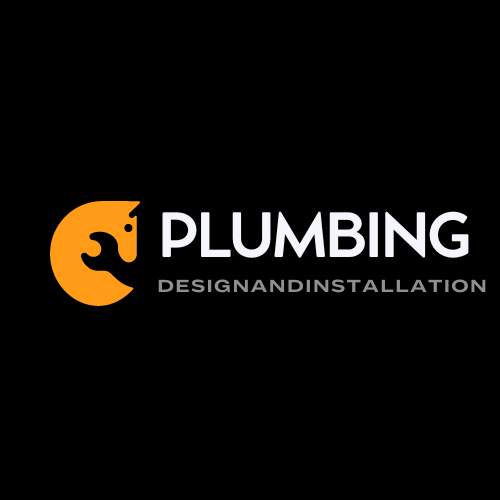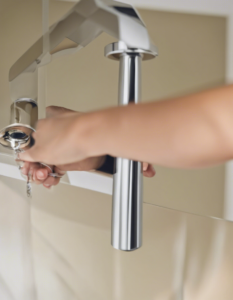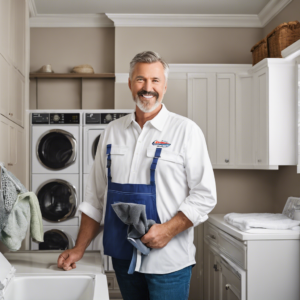
Find expert answers to your frequently asked plumbing questions from experienced plumbers. Get the solutions you need for all your plumbing services.
Dealing with broken plumbing can disrupt daily home life and cause costly property damage if not addressed promptly. Yet solving faucet drips, drain clogs, and toilet troubles often feels confusing for homeowners lacking plumbing know-how.
To help you handle common plumbing mishaps like a pro, this guide answers 12 frequently asked questions about drain cleaning, leak detection, pressure issues, frozen pipes, toilet repair, water heaters, and more straight from the experts. Read on to gain insider troubleshooting tips that save money while keeping your home’s water flowing.
Common Homeowner Plumbing Questions
Before diving into resolving specific issues like clogged drains and leaky faucets, let’s review the most frequent plumbing questions homeowners have:
Drain Cleaning – Why is my kitchen sink clogged? How do I unclog my main sewer line?
Kitchen sinks can get clogged with food debris, grease, hair, and soap scum over time. Using sink strainers, avoiding pouring fats/oils down drains, and periodic drain maintenence can help prevent clogs. If already clogged, try a plunger, baking soda/vinegar treatment, or mechanical snake before calling a plumber for persistent sinks backups.

For sewer line clogs, roots growing into exterior pipes, flushed solids like wipes accumulating, bellies or fractures in old pipes, and invasive tree roots are common culprits. Trying a drain snake or high pressure water jetting may clear the main line. But severe obstructions often require excavation and sewer line replacement/repairs by an expert plumber.
Leaks – What’s causing a leak under my sink? How can I find hidden water leaks?
Leaks under sinks commonly originate at the drain connections to the wall, leaks around the faucet base, cracks in supply lines or the sink itself. Check all fittings with a flashlight, running water to reveal drips. Try tightening connections, using silicone caulk/plumber’s putty to seal cracks, or replace leaking supply hoses. Persistent water leakage likely means corroded drain pipes or faulty sink basins needing replacement.
Finding hidden water leaks can be challenging if they’re within walls or under floors. Signs like recurring moisture in one area of drywall, lifting floor tiles, or mold around baseboards signal a hidden supply line leak needing attention before structural issues arise. Thermal imaging cameras and acoustic listening devices used by plumbers can isolate the leak location to allow surgical pipe repairs rather than major demolition.
Toilets – How do I fix a constantly running toilet? Why does my toilet bowl water level fluctuate?
A constantly running toilet (water cycling when not in use) means worn flapper valves or tank components need replacing so water isn’t continuously entering the bowl. Adjusting the float might temporarily help if adjusted too high. But complete toilet tank part kits are inexpensive for permanent DIY repairs.
If the water level looks too high or low in your toilet bowl, the tank fill tube height might need adjusting or the fill valve might not closing fully allowing overflow into the bowl. Cracks in tank or bowl also leads to water loss. Checking all connections and float settings can solve simple issues, but cracks require porcelain replacement.
Water Heaters – How can I make my water heater last longer? What causes water heaters to fail?
To extend water heater lifespan, draining sediment from the tank annually avoids buildup burning out heating elements prematurely. Lowering the thermostat temp to 120 degrees F also reduces mineral formation. Replacing old units over 10-15 years before they fail prevents leaks or cracks. If already leaking, replacement ASAP is critical.
Common reasons heaters fail besides old age include sediment-triggered damage, rust corrosion, high pressure causing cracks, heating element failures causing no hot water, and leaks leading to system failures. Many issues can be avoided with periodic maintenance like flushing, anode rod inspection & tank pressure relief.
Water Pressure – Why do I sometimes have low water pressure? How can I increase it?
Inconsistent home water pressure can stem from partially closed/damaged supply valves, clogged water filters, failing pressure regulators, burst pipes losing prime, mineral deposits in galvanized pipes, well pump issues in rural houses, and municipal supply interruptions.
Increasing pressure relies on finding and addressing the root cause – valve/regulator failures, burst pipes allowing air entry, etc. Switching to wider PEX during repiping, adding booster pumps, installing water storage tanks, or treatment systems that prevent mineral deposits accumulation can also help provide consistent home water pressure during peak demand.
Winterizing – Why do pipes freeze and how can I prevent bursting? How do you unfreeze frozen pipes?
Pipes commonly freeze in uninsulated exterior walls, crawl spaces, attics and unheated indoor rooms during cold winter spells. Preventing burst pipes involves properly insulating all at-risk pipes, sealing openings/cracks letting cold air reach pipes, disconnecting and draining outdoor hose bibs, maintaining suitable indoor heat during vacations, and shutting main home water valve if pipes still freeze despite precautions.

To thaw already frozen pipes without breaking them, use a hair dryer or space heater pointed at the suspected problem area, concentrating heat there until full water flow resumes at faucets fed by the formerly blocked line. Avoid applying direct flame to frozen pipes which can crack them. Call a plumber if significant pipe damage is suspected during the thaw process.
Having a go-to plumber for professional assistance is wise. But arming yourself with answers to common problems lets you troubleshoot minor issues independently.
Why Hire a Licensed Plumber?
While DIY-ing basic fixes, larger plumbing predicaments should be trusted to licensed pros. Hiring a reputable plumber offers:
- Specialized expertise gained from years handling all types of plumbing systems
- Proper codes compliance ensured through up-to-date training and licensing
- Access to advanced equipment like mini-cameras, hydro-jetters, and drain snakes reaching blockages deeper in pipes than household tools
- Efficiency from extensive experience quickly diagnosing and correcting all manner of leaks, clogs, pressure problems, etc.
Put experienced plumbers on your side so you can get household water flowing ASAP. Now let’s cover expert solutions to 12 common plumbing conundrums.
Drain Cleaning & Clogs
Clogged drains disrupt kitchens and bathrooms. Learn what causes backups and the best unclogging methods:
What Causes Clogged Drains?
Buildups of hair, soap residue, and food grease are typical culprits. Tree roots infiltrating exterior lines also frequently choke drains over time.
How to Unclog Drains
For DIY drain cleaning, use a zip-it tool to extract hair, boiling water to melt grease, or try plunging accumulated gunk loose. Avoid harsh chemical drain openers which can corrode pipes.
For extensive clogs, call for professional drain cleaning. Powerful equipment like augers or hydro-jetters will blast blockages away restoring full flow.
Leaks
Undetected leaks cause insidious water waste and mold risks. Stay vigilant with these expert tips:
Detecting Hidden Leaks
Watch for damp spots on walls and floors, new mold growth, or unexplained spikes in water bills signaling underthe-surface pipe leaks.
Stopping Difficult Leaks
Ongoing leaks likely require pipe repairs that certified plumbers can best execute, using sleeves, epoxies, and couplings to seal joints. They’ll also replace corroded pipes.
Careful leak monitoring protects from out-of-sight water loss and resulting rot or dangerous mold spreading through walls and subfloors. Call pros for intricate pipe fixes.
Toilet Repairs
Noisy, running toilets squander gallons of water daily. Identify and fix common toilet troubles like:
Common Toilet Problems
If a toilet keeps running after flushing, worn flapper valves or bent lift chains likely need replacing so they seal completely. Low water levels cause poor flushing power and indicate mineral buildup or leaks robbing water from the tank.
When To DIY vs Call A Pro
Handy homeowners can swap new toilet tank parts like flappers easily with basic tools. But extensive water-wasting leaks involving the toilet bowl require qualified plumbers to detect where seals or pipes fail then meticulously replace watertight fittings.
Stay alert to changes in toilet performance before they inflate your water bill.
Water Heaters
Ensure endless hot showers by maintaining water heaters right.
Extending Water Heater Lifespans
Drain mineral-rich sediment that accumulates at the heater bottom annually by attaching a hose to the tank drain valve. Adjusting heat settings lower saves energy and reduces mineral formation too.
Recognizing Failing Water Heaters
If you run out of hot water quicker lately or rust appears, a new unit likely looms. Also watch for internal tank leaks or strange gurgling sounds. Schedule replacement before total failure causes disastrous flooding.
Stay proactive on maintenance and monitor old water heaters heading toward expiration to avoid emergency scenarios.
Low Water Pressure
Inconsistent water pressure hampers busy mornings. Pinpoint the reasons behind pressure drops:
Determining the Cause
Check your water main to ensure fully open valves. Partially closed supply valves diminish flow. Interior clogs, fixture leaks letting air enter pipes, and failing well pumps can also decrease water pressure.
Increasing Home Water Pressure
Installing water pressure booster pumps amp up low pressure. Repiping corroded supply lines and replacing flow restricting galvanized steel pipes also improves volume and pressure.
Don’t tolerate frustrating drips during peak use. Solve inadequate home water pressure to reclaim strong soothing showers!
Frozen & Burst Pipes
Icy winters inevitably freeze exposed water lines, stopping flow. Avoid pipe ruptures with preventative prep:
Winterizing Plumbing
Before cold weather hits, insulate pipes in drafty areas like attics or under kitchen sinks prone to freezing. Shutting off outdoor spigots and draining them for winter prevents cracks too.
Thawing Frozen Pipes
If water stops running from select taps, trace supply lines to find frozen sections and thaw ice blockages with a hair dryer on defrost setting. Slow steady heating melts without bursting pipes.
Staying vigilant as temperatures drop avoids costly winter plumbing headaches. Call 24/7 if pipes still freeze or burst despite preparations.
I hope this plumbing troubleshooting Q&A arms you to confront common household water system issues confidently using professional techniques. More complex repairs still warrant calling for back-up. Now let’s recap key takeaways:
Conclusion
- Address drain clogs early using appropriate DIY methods to restore flow
- Stay alert to signs of hidden leaks before catastrophic failures happen
- Maintain fixtures like toilets to minimize water waste
- Extend water heater lifespan via annual flushing and lower temperature settings
- Determine reasons behind pressure loss to restore optimal flow strength
- Prepare exterior pipes properly before winter to prevent burst lines
Equipped with answers to the most frequent plumbing questions, you can now tackle minor issues getting your home’s water and drainage working smoothly again. Check out these additional useful plumbing tips and answers to leftover questions:
MORE FAQs
How often should plumbing systems be inspected?
At minimum, arrange full plumbing inspections every other year to catch corrosion, leaks, and clogs early before problems worsen. Annual camera scope drain line checks also help avoid major basement flooding disasters. Consider signing up for preventative maintenance plans from a reputable plumbing company to stay ahead of repairs.
What tips prevent hair clogs?
Hair strainers catch loose strands before reaching drains. Avoid letting clippings scatter during grooming. Routinely flush lines weekly with hot water, vinegar or baking soda to keep water flowing freely.
Why does my toilet run intermittently?
If a toilet randomly runs every few minutes without recent use, the tank fill valve likely needs replacing due to mineral buildup or wear allowing sporadic water flow. Call a plumber to swap in updated fill valve parts restoring consistent operation.
My kitchen faucet sprayer doesn’t work right – what should I check?
If sprayers sputter, shoot uneven streams, or spin loosely, inspect the faucet diverter and hose for clogs or cracks. Soak extendable hoses in hot vinegar batches to clear mineral deposits. Replace worn washers/gaskets to fix drips or weak pressure.
Q: What are the 12 most common plumbing questions?
A: The 12 most common plumbing questions usually cover topics such as clogs, leaks, water pressure issues, water heater problems, and more. It’s important to address these questions to ensure your plumbing system functions properly.
Q: What are some common plumbing problems to look out for?
A: Common plumbing problems include dripping faucets, slow draining sinks, low water pressure, running toilets, and leaky pipes. These problems may seem minor, but they can lead to bigger issues if not addressed promptly.
How can I maintain my garbage disposal?
To maintain your garbage disposal, avoid putting fibrous or starchy foods, large amounts of food scraps, or non-food items down the disposal. Regularly cleaning with ice cubes and citrus peels can also help keep it fresh and clean.
How do tankless water heaters differ from traditional water heaters?
Tankless water heaters heat water directly without the use of a storage tank, providing a continuous supply of hot water. Unlike traditional water heaters, which store hot water, tankless water heaters are more energy-efficient and space-saving.
What are some commonly used plumbing tools for minor repairs?
For minor plumbing repairs, commonly used tools include pliers, wrenches, pipe cutters, plungers, and pipe sealant tape. These tools can be useful for addressing minor leaks, clogs, or simple installation tasks around the house.
How can I unclog a drain without using chemical drain cleaners?
You can use a mixture of baking soda and vinegar, or try using a plumbing snake to remove clogs without resorting to chemical drain cleaners.
Q: What should I do if I encounter a plumbing emergency?
A: In case of a plumbing emergency, it’s essential not to panic. Turn off the main water supply and contact a licensed plumber immediately to assess and resolve the issue. Addressing emergencies promptly can prevent further damage to your plumbing system.
Q: How can I prevent plumbing issues related to hard water?
A: To prevent plumbing issues caused by hard water, consider installing a water softener to reduce the mineral content in the water. Regular maintenance of plumbing fixtures and pipes can also help minimize the impact of hard water on your plumbing system.
Q: How often should I perform plumbing maintenance checks in my home?
A: It’s recommended to perform plumbing maintenance checks at least once a year. Checking for leaks, testing water pressure, inspecting plumbing fixtures, and ensuring proper functioning of water heaters are essential aspects of regular plumbing maintenance.
Q: What are the most common plumbing problems?
A: Some of the most common plumbing problems include leaky faucets, clogged drains, running toilets, low water pressure, and faulty water heaters.
Q: When should I consider getting a tankless water heater?
A: Tankless water heaters are a great option if you want to save space, reduce energy bills, and have a constant supply of hot water on demand.
Q: What should I do if my garbage disposal is not working?
A: First, try resetting the disposal using the reset button. If that doesn’t work, check for any blockages or call a licensed plumber for help.
Q: How can I prevent plumbing emergencies in my home?
A: Regular maintenance, such as checking for leaks, maintaining your water heater, and inspecting your plumbing fixtures, can help prevent plumbing emergencies.
Q: What are the 12 most common plumbing questions homeowners have?
A: The 12 most common plumbing questions cover topics such as repairing leaks, troubleshooting water pressure issues, maintaining plumbing fixtures, and dealing with clogged drains.
Q: What are the benefits of using Benjamin Franklin Plumbing services?
A: Benjamin Franklin Plumbing offers expert plumbing repairs, reliable services, and licensed plumbers who can address a wide range of plumbing issues efficiently.
Q: Are chemical drain cleaners safe for my plumbing system?
A: Chemical drain cleaners can cause damage to your plumbing system over time and are best avoided. Consider using alternative methods for clearing clogs.
Q: What should I do in case of a plumbing emergency at home?
A: In case of a plumbing emergency, such as a burst pipe or serious leak, it’s important to shut off the main water valve, and then call a licensed plumber for immediate assistance.
Q: Why should I hire a professional plumber for my plumbing repairs?
A: Professional plumbers have the expertise, tools, and experience to handle complex plumbing issues and ensure that repairs are done correctly and safely.
Plumbing Maintenance Tips
- Test toilets for leaks annually
- Inspect water heater pipes and valves for corrosion
- Pour hot water and baking soda down drains monthly
- Check under sinks routinely for pooling water and leaks
- Listen for running toilets that waste water
Invest just a few minutes monthly into plumbing upkeep for smooth-flowing water year-round without costly emergency service calls!



